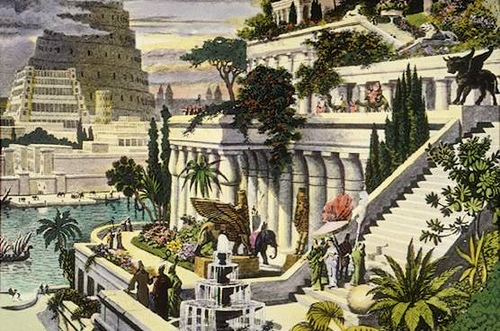
Photo by <a href="http://www.flickr.com/photos/hauntedpalace/232968544/" target="new">Carla 216</a> used under a Creative Commons license.
Attention has shifted to Afghanistan, but the results of the (yes, still ongoing) American presence in Iraq continue to reveal themselves. Among them is a report (PDF) released Thursday by UNESCO, alleging that American soldiers and private contractors sullied one of the world’s richest archeological sites after the 2003 invasion. The site has long suffered from plunderers and mismanagement, but the American operation seems to have only worsened things. The Hanging Gardens of Babylon, one of the Seven Wonders of the World, became the location for “Camp Alpha.” The impact of thousands of soldiers and their heavy equipment on the historic site caused “a considerable amount of damage,” said the British Museum’s John Curtis, after the report was released to the press in Paris.
From the AP:
American troops and contractors, notably from KBR — then a Halliburton subsidiary — dug trenches several hundred yards (meters) long through the ruins, bulldozed hilltops, and drove heavy military vehicles over the fragile paving of once-sacred procession paths, according to a report presented Thursday at UNESCO’s headquarters in Paris…
UNESCO officials stressed that the damage didn’t begin with the U.S. military or fully end after it left. Many of Babylon’s most famous artifacts were ripped off walls by European archaeologists during the 19th century and remain on display at the Louvre and Pergamon Museums in Paris and Berlin.
Iraqi dictator Saddam Hussein also restored or distorted some of the ruins so badly that it prevented UNESCO from listing Babylon as a World Heritage site in the past, UNESCO officials said.
Looting and black-market trading has continued on a large scale since the site was handed back to Iraqis, they added.
The scale of the damage means it is too early to assess how much money will be needed to restore and fully protect the site, said Curtis and the other experts who prepared the UNESCO report, which caps five years of investigation and multiple findings by Iraqi and international academics.













